#cecil b. de mille
Text
Kosloff as Electricity in Madam Satan


“Madam Satan” film photograph featuring Theodore Kosloff as “Electricity”, 1930. | src Special Collections Research Center, George Mason University Libraries C0468
view more on wordPress
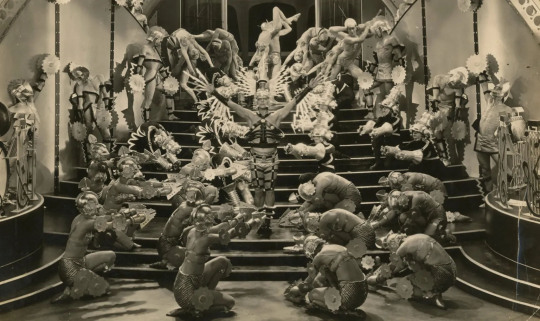
“Madam Satan” film photograph featuring Theodore Kosloff as “Electricity” and a group of dancers dressed as turbines or generators for the ballet sequence entitled Ballet Mechanique. | src George Mason University Libraries
view more on wordPress
#madam satan#theodore kosloff#adrian#art deco#art deco costume#ballet mecanique#Ballet Mechanique#cecil b. de mille#cecil b. demille#costume design#1930s#dance costume#tanzkostum#dance figure#dance#Tanz#danse#danza#dansa#tansii
161 notes
·
View notes
Text

Princess Grace of Monaco in conversation in New York on October 5, 1956, with Cardinal Spellman, Roman Catholic Archbishop of New York, and Cecil B. de Mille, the film producer. They were attending a preview of the film "The Ten Commandments" which Mr. de Mille produced and directed.
Below is a picture of Cecil B. De Mille introducing Grace to Anne Baxter and Judith Anderson on the set of "The Ten Commandments" at the beginning of the year. Grace Kelly was De Mille's first option for the role of "Séfora" (Moises's wife) but she was unable to.

#grace kelly#princess grace#cardinal spellman#cecil b. de mille#the ten commandments#1956#catholic#new york#ANNE BAXTER#JUDITH ANDERSON#LOS 10 MANDAMIENTOS
3 notes
·
View notes
Text

02-27-24 | Yul Brynner played Rameses The Great for director Cecil B. De Mille in the 1956 Biblical opera, The Ten Commandments. misterlemonztenth.tumblr.com/archive
#misterlemonztenth#popular#original post#black and white#actor#1950s#yul brynner#rameses II#egypt#pharaoh#the ten commandments
62 notes
·
View notes
Text
Holiday Audio/Video Gifts!
For the holiday season, here are some audio gifts from various shows and one Phantom video! The link to them is here and the info is below the cut:
Happy holidays and I hope you are all having time for some rest!
Audios
POTO
Jon Robyns, Paige Blankson, Joe Griffiths-Brown, Kelly Glyptis, Matt Harrop, Adam Linstead, Francesca Ellis, David Kristopher Brown, Maiya Hikasa
August 22, 2023; London
Tim Howar, Harriet Jones, Nadim Naaman, Lara Martins, Nicholas Garrett, Arvid Larsen, John Ellis, Valerie Cutko, Kelsi Boyden
March 19, 2023; Greece
Josh Piterman, Corinne Cowling (u/s), Danny Whitehead, Katy Hanna (u/s), Ross Dawes, Kris Manuel (u/s), Sophie Caton (u/s), Paul Ettore Tabone, Georgia Ware
October 17, 2019; London
Matinee.
Jeremy Stolle (u/s), Samantha Hill, Greg Mills (u/s), Michele McConnell, Richard Poole (u/s), Tim Jerome, Ellen Harvey, Christian Sebek, Kara Klein, Scott Mikita (u/s)
March 9, 2013; Broadway
Matinee performance.
John Owen-Jones, Deborah Dutcher, Matthew Cammelle, Bruce Montague, Charles Shirvell, Margaret Mary Kane (u/s), Janet Murphy, Jeremy Secomb, Lucy Middleton
January 5, 2002; London
Love Never Dies
Tam Mutu, Celia Graham, David Thaxton, Daniel Dowling
August 25, 2011; London
Tam Mutu's last performance.
Les Miserables
Christopher Jacobsen (u/s Jean Valjean), Stewart Clarke (Javert), Katie Hall (Fantine), Will Callan (Marius), Lulu-Mae Pears (Cosette), Amena El-Kindy (Eponine), Luke Kempner (Thenardier), Claire Machin (Madame Thenardier), Dejan Van der Flyert (Enjolras), Alex Shaw (Gavroche), Clohe Sullivan (Little Cosette), Tom Hext (Grantaire/Majordomo), Adam Pearce (Bishop/Claquesous), Ellie Ann Lowe (Factory Girl), Jordan Simon Pollard (u/s Foreman/Bujon), Matt Dempsey (Bamatabopis/Lesgles), Annabelle Aquino, Hazel Baldwin, Emily Olive Boyd, Ben Culleton, Matt Hayden, Sam Kipling, Anouk Van Lake, Harry Lake, Ben Oatley, Jonathan Stevens, Phoebe Williams, Ollie Wray
September 28, 2023; London
15,000th show in London and the 5th show for the new company.
Sunset Boulevard
Nicole Scherzinger (Norma), Tom Francis (Joe Gillis), David Thaxton (Max von Mayerling), Grace Hodgett Young (Betty Shaefer), Ahmed Hamaad (Artie), Tyler Davis (Sheldrake), Charlotte Jaconelli (Johanna), Jon Tsouras (Cecil B. de Mille)
September 28, 2023; London
Rebecca
Laureen Jones (I), Richard Carson (Maxim de Winter), Kara Lane (Mrs Danvers), Sara Harlington (Beatrice), Neil Moor (Giles), Piers Bate (Frank Crewley), David Breeds (Ben), Alex James Ward (Jack Favell), Shrley Jameson (Mrs Van Hopper), Nicholas Lumley (Colonel Julian)
September 27, 2023; Off-West End
POTO Video
Ian Jon Bourg, Olivia Safe (u/s), Kyle Gonyea
2001; Hamburg, Germany
VOB files. One of the most legendary Phantom's opposite one of the youngest Christine's!
#as always if any have to be removed do let me know!#audio gift#video gift#phantom of the opera#the phantom of the opera#les miserables#love never dies#rebecca#sunset boulevard#jon robyns#paige blankson#nicole scherzinger#ian jon bourg#kara lane#richard carson#christopher jacobsen#stewart clarke#katie hall#tam mutu#celia graham#tim howar#harriet jones#nadim naaman#jeremy stolle#samantha hill#greg mills#josh piterman#corinne cowling#danny whitehead
103 notes
·
View notes
Text

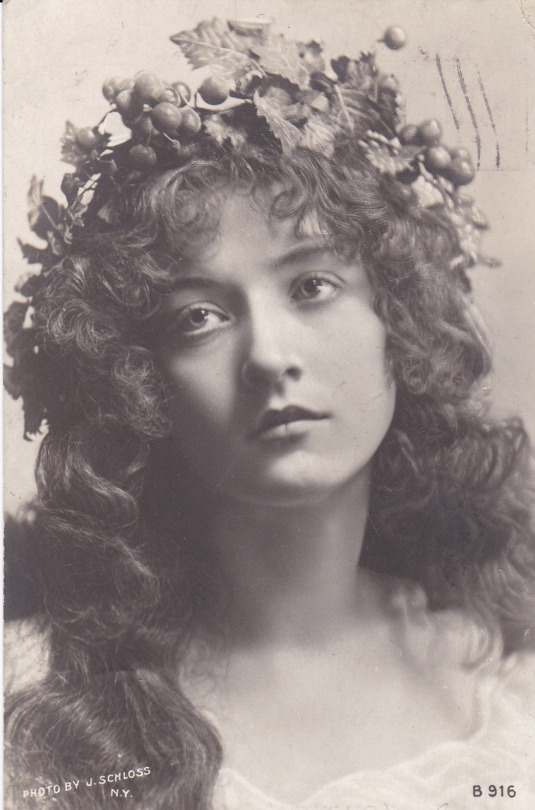
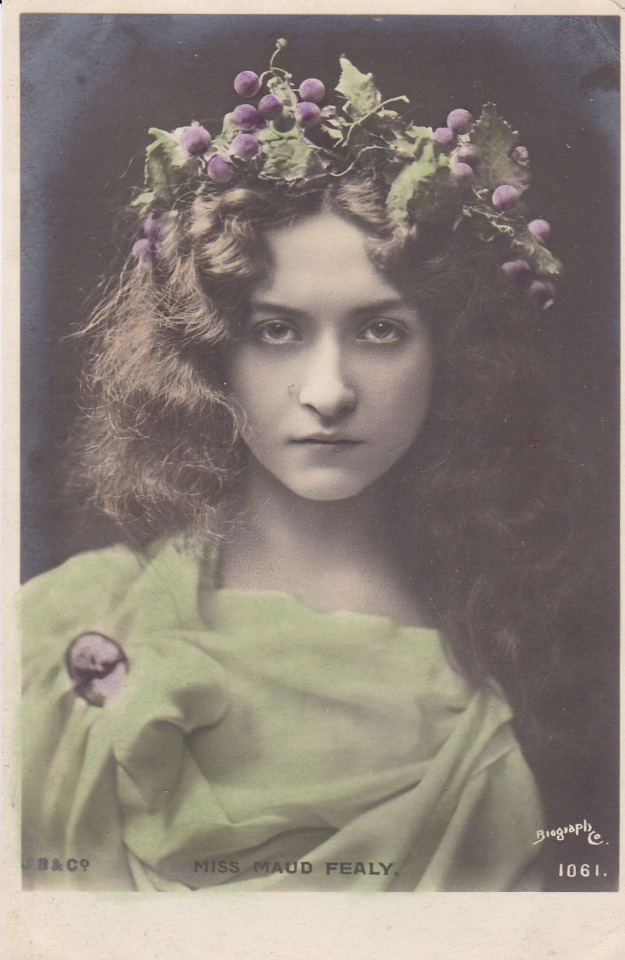
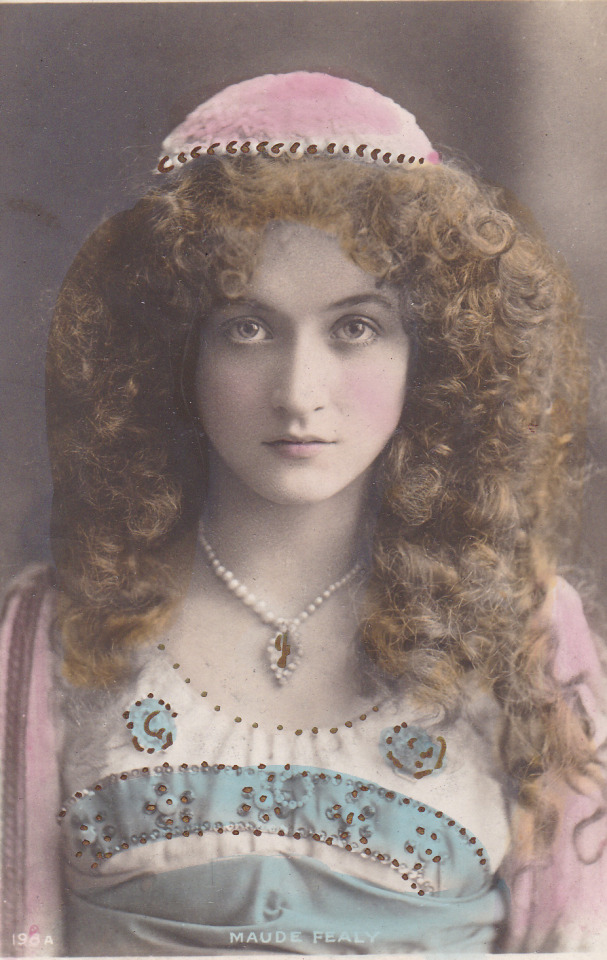



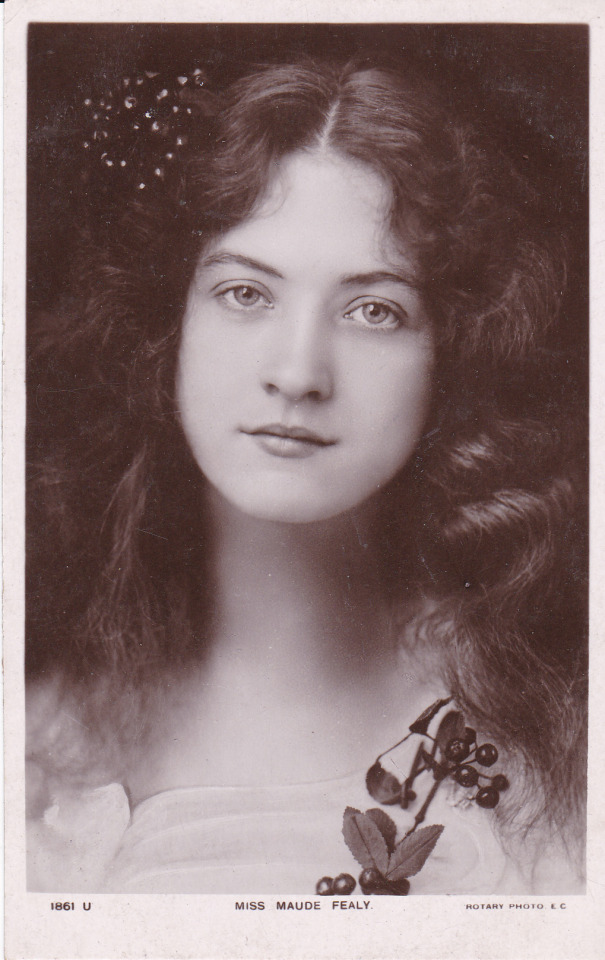
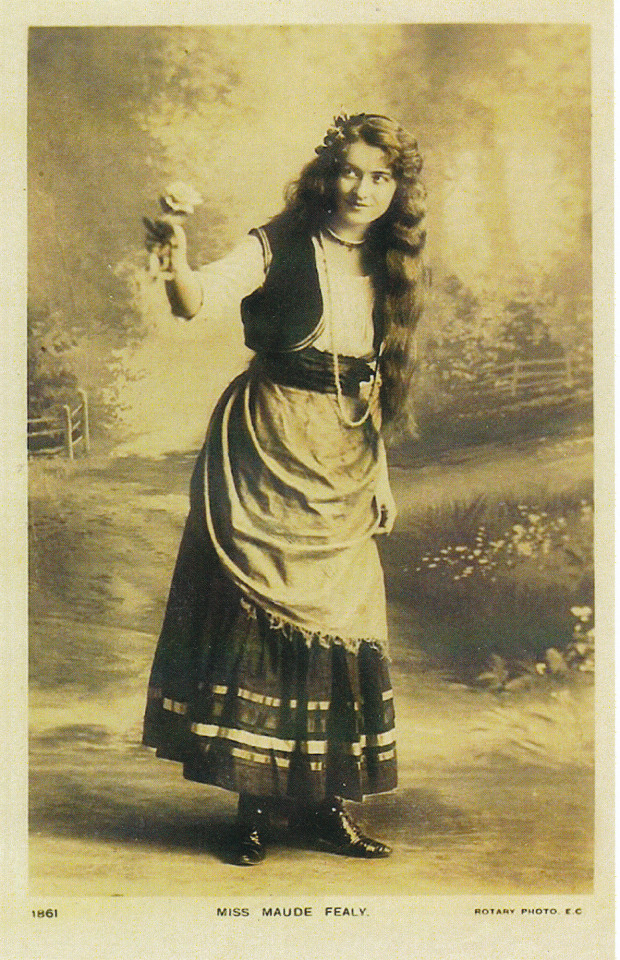
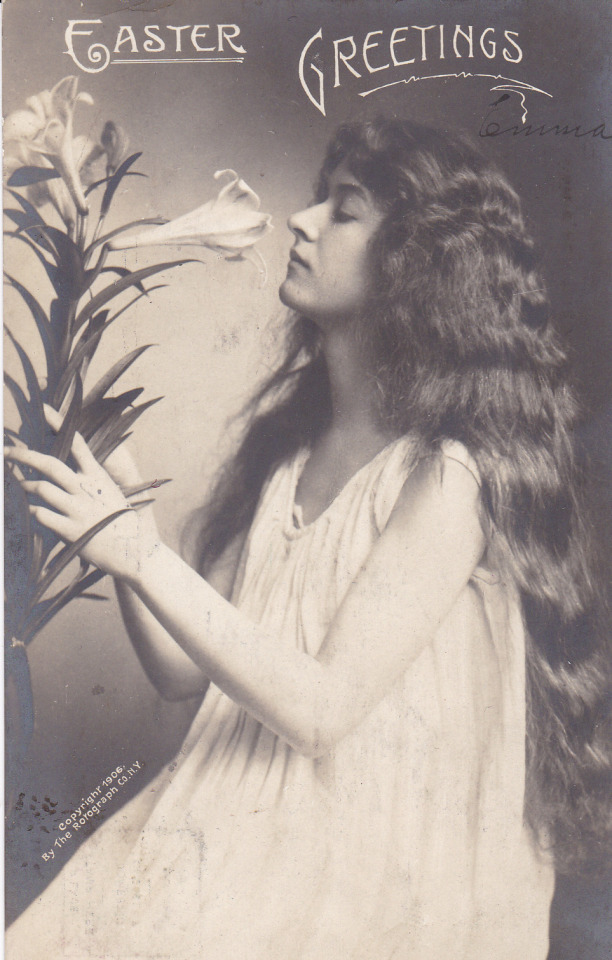


I posted the FAB silk postcard of the American actress, Maude Fealy a couple of weeks ago and said that I would post some more about her, here a are few more images of Maude from my collection of postcards and photographs.
The first postcard shows Maude as Alice Faulkner from the play 'Sherlock Holmes.' The third one shows Maude as Eunice from 'Quo Vadis'.
The sixth postcard shows a winning photograph by Burr McIntosh from the French magazine 'Paris Figaro Illustre.' Maude's photograph was sent to their competition (to find the most beautiful woman in the world) by the American photographer, William Burr McIntosh. Maude was the winner, chosen from out of 30, 000 entrants from all over the world.
Some information about Maude from Wikimedia.
Maude Mary Hawk was born on March 3/4, 1881-3 in Memphis, Tennessee (the dates vary depending upon the source) the daughter of actress Margaret Fealy and James Hawk, who divorced. Maude took her mother's name, Fealy.
In 1896, she made her debut at the Elitch Theatre in Denver playing various children's roles. Her first appearance was during the week of July 19 in Henry Churchill de Mille's The Lost Paradise. In 1905, Churchill de Mille's son Cecil B. DeMille was hired as a stock player at Elitch Theatre, and Maude appeared as the featured actress in several plays. Their friendship continued for decades, including when DeMille cast Maude in his film The Ten Commandments.
Maude made her Broadway debut in the 1900 production of Quo Vadis, again with her mother.
Maude toured England with William Gillette in Sherlock Holmes from 1901 to 1902. Between 1902 and 1905, she frequently toured with Sir Henry Irving's company in the United Kingdom, and by 1907, she was the star in touring productions in the United States.
In Denver, Colorado, Maude met a drama critic from a local newspaper named Louis Hugo Sherwin (son of opera singer Amy Sherwin). The two married in secret on July 15, 1907, because, as they expected, her domineering mother did not approve. The couple soon separated and divorced in Denver in 1909. Maude then married actor James Peter Durkin. He was a silent film director with Adolph Zukor's Famous Players Film Company. This marriage ended in divorce for non-support in 1917. Soon after this, Maude married John Edward Cort. This third marriage ended in a 1923 annulment and was her last marriage. She bore no children in any of the marriages.
Maude died on November 10, 1971.

190 notes
·
View notes
Text
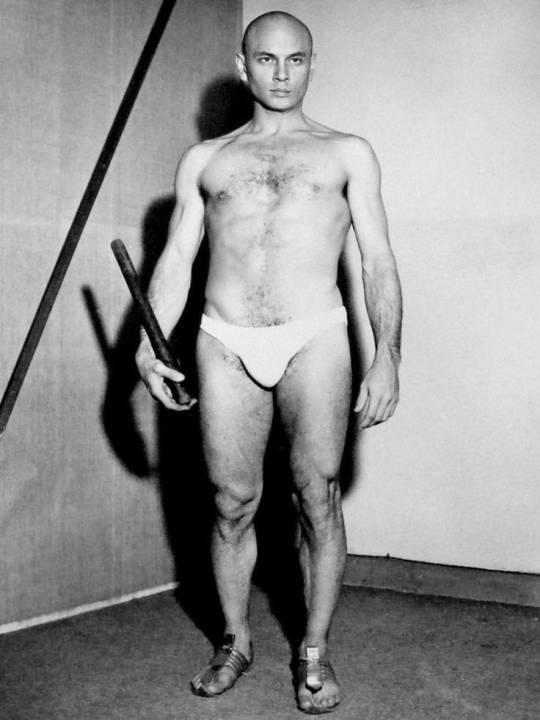
Picture of Yul Brenner in preparation for his role as Pharaoh Rameses II in Cecil B. De Mille's The Ten Commandments (1956).
34 notes
·
View notes
Text

Thomas Ince, Jesse Lasky, and Cecil B de Mille—1920
44 notes
·
View notes
Text



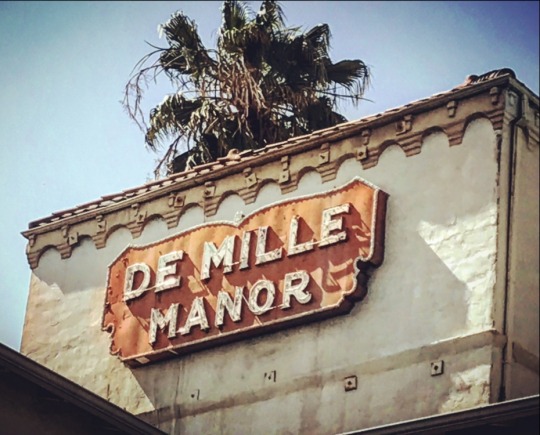
De Mille Manor on Argyle Avenue was the location where Cecil B. DeMille purchased a house for his mother when she moved to town.
After she died in 1919, he developed this beautiful apartment building and named it De Mille Manor.
It is an impressive Hollywood landmark that nobody ever mentions.
20 notes
·
View notes
Text
Response To Post on Disney in 2023
aspirationatwork
"But sure, the scary Left is ruining your movies and not the profit-driven corporation"
Philosophicalconservatism
The profit motive was in place during the golden age of Hollywood when it was run by Conservative Republicans like Frank Capra, Sam Wood and Cecil B De mille, just as it is now. The profit motive does not determine the character of the movie or entertainment industry, the culture does; and men work within the profit motive to promote that culture .
20 notes
·
View notes
Text
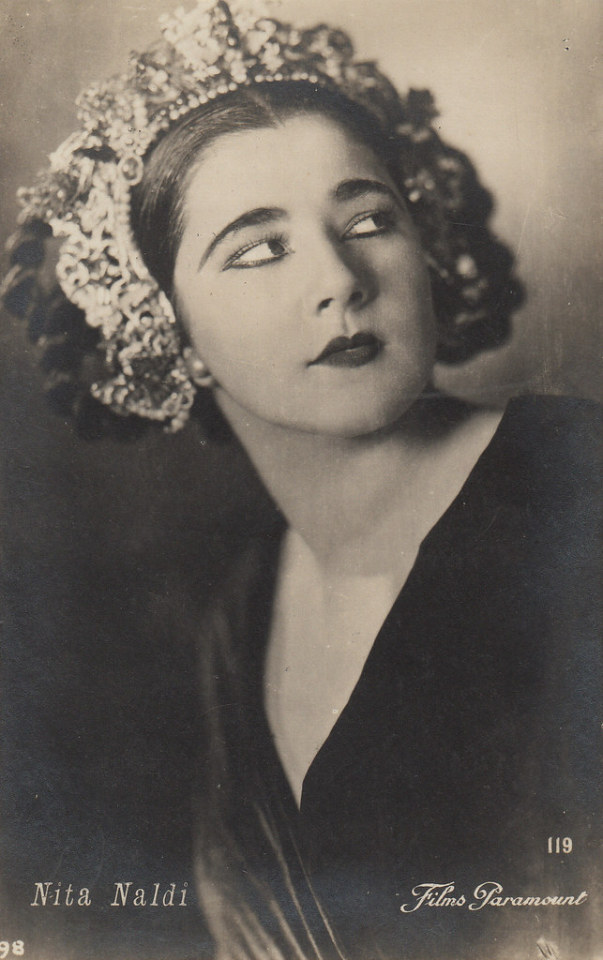
Nita Naldi
Italian postcard by Casa Editrice Ballerini & Fratini (B.F.F. Edit.), no. 119. Photo: Films Paramount. Nita Naldi in The Ten Commandments (Cecil B. De Mille, 1923). Collection: Marlene Pilaete.
24 notes
·
View notes
Text

Actress Nita Naldi in costume as Sally Lung in The Ten Commandments (DeMille, 1923) [detail; headshot]
View on WordPress
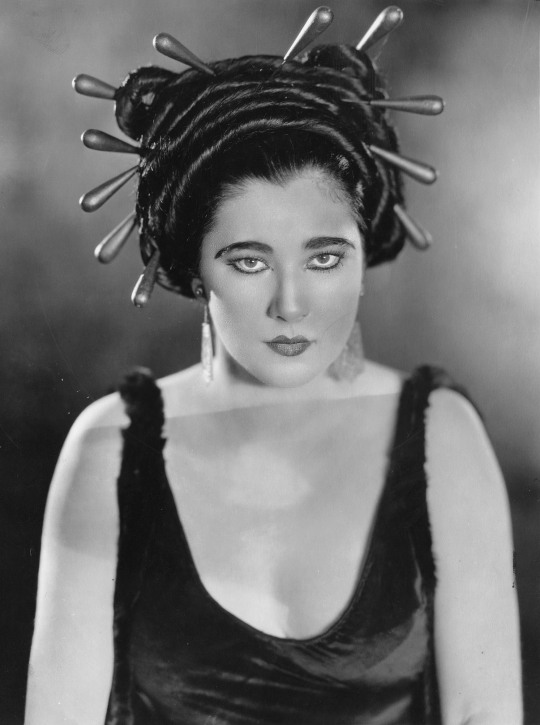
Actress Nita Naldi in costume as Sally Lung in Cecil B. DeMille's 1923 movie The Ten Commandments | src getty images
View more on WordPress
#nita naldi#cecil b. demille#hairdo#the ten commandments#hairstyle#headgear#old hollywood#portrait#role portrait#Porträt#retrato#ritratto#1920s#portret#retrat#Bildnis#cecil b. de mille#Rollenporträt#Rollenfoto#sally lung
44 notes
·
View notes
Text
(043) Die drei ??? und der höllische Werwolf

Klappentext
Ein Werwolf macht Hollywood unsicher. Er verübt Überfall auf Überfall – und dabei geht es ihm nur um kleine Teddybären. Justus, Bob und Peter machen einen seltsamen Fund am Strand und kommen so auf die Spur des Verbrechers. Sie haben ihr vielleicht gefährlichstes Abenteuer zu bestehen …
Veröffentlichungshistorie
Buch (Random House): 041, 1985, M. V. Carey, The Mystery of the Creep-Show Crooks
Buch (Kosmos): 042, 1988, Leonore Puschert (aus dem Amerikanischen übertragen)
Hörspiel (Europa): 043, 1988
⁉️ Allgemein
Handlungsort
Rocky Beach
Kategorie
Diebstahl, Spuk
Figuren
Justus Jonas
Peter Shaw
Bob Andrews
Bibliothekarin
Judy Anderson, Mutter von Lucille
Charles Anderson, Vater von Lucille
Kommissar Reynoldss
Pfandleiher
Mr. Sears, Inhaber der Pizza Shack (😈)
Morton, Chaffeur (keine Sprechrolle)
Lucille Anderson / Arianne Ardes
Larry Evans, Pförtner in Cheshire Square
Pelucci / Craig McLaine, Filmproduzent (😈)
Henry Morell, Filmproduzent (😈)
Pelzhändler
Alfred Hitchcock, Erzähler
🏖 Rocky Beach Universum
Orte
Fresno, Stadt in Kalifornien
Beach Hill 840, Nummer von Justus / Zentrale / Gebrauchtwarenzenter
Hollywoodboulevard
Cheshire Square, Wohnanlage auf einem Felsmasssiv mit Blick auf dem Pazifik
Einrichtungen
Bücherei in Fresno
Zentrale
Schrottplatz
Pizza Shack, Restaurant an der Küstenstraße von Rocky Beach
Rocky Beach Hotel
R. J. Importers, Großhändler
Sonstiges
»Dracula, mon amour«, ein Film der noch produziert werden soll
Cecil B. De Mille, Regisseur, Produzent und Schauspieler
🛼 Sonstiges
Lustige Dialoge
Justus: "Lass mal sehen, was alles drin ist, Bob."
Bob: "Ja, ein ganzes Sortiment Kosmetika. Allein vier Lippenstifte."
Justus: "So klein kann die Kleine also nicht sein."
Peter: "Ja ja, immerhin schmust sie noch mit Teddybären."
Bob: "Das ist vielleicht eine Schlampe."
Justus: "Hm, aber mal angenommen es wäre etwas in dem Teddybär versteckt?"
Bob: "Mann, du hast recht, Just. Das ist es! Schmuck! Schmuck oder Rauschgift."
Peter: "Justus, willst du einsteigen?"
Justus: "Nein, auf keinen Fall. Aber wenn das Fenster auf ist, können wir was sehen."
Peter: "Warte, ich helf dir."
Justus: "Nein! Ah! Haltet mich!" *fällt*
[...]
Bob: "Komm zurück, schnell!"
Justus: "Jetzt bin ich hier. Jetzt seh' ich mich um."
Phrasenschwein
Den schnapp ich mir!
Peter schnappt den Bösen … nicht
Fat shaming
Justus wird beleidigt
Breaking the Law!
Justus bricht das Gesetzt. (mehr oder weniger: Er fällt durch's Fenster und wo er schonmal da ist schaut er sich auch um ...)
🏳️🌈 Queer/diversity read
Shippy moments
-
Diversity, Political Correctness and Feminism
McLain: "Henry und ich führen ein recht ländliches Dasein. Wir wohnen in den Bergen, ziemlich abgelegen. Das Haus hat früher Cecile B. DeMille gehört. Stellen sie sich vor, morgens weckt uns das Blöken der Schafe. Telefon haben wir da oben nicht, aber meine Sekretärin kann mich jederzeit verständigen."
#die drei fragezeichen#die drei ???#und der höllische werwolf#folge 043#043#M. V. Carey#rocky beach#diebstahl#spuk#fat shaming#den schnapp ich mir!#breaking the law
8 notes
·
View notes
Text
Film History: Pre-code films
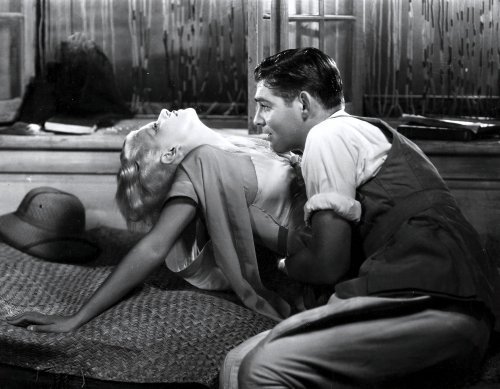
The pre-code era represented a radical change in the role of women in cinema. Undoubtedly, the new female protagonism was not attributable to a sudden interest in the figure of women in society, nor by the search for equality, not even by a current of socio-cultural thought that sought renewal, in this regard , of the American arts.
The studios simply used women to find enough sensationalism, morbidity and scandal to bring more audiences to theaters. It is evident that, despite the fact that economic gain was sought more than artistic quality, the end result was that many actresses became real movie stars, gaining a prominence, in many cases, greater than that given to male roles , and even, as we will see later, an actress even saved a major studio from bankruptcy.
There were many films that directly or indirectly addressed issues related to adultery, although perhaps it was the Metro Goldwyn Mayer film "The Divorcee" from 1930, the first to address the issue directly, creating a stir among the most popular conservative sector of American society.
The protagonist (Norma Shearer), deceived by her husband, decides to take revenge by sleeping with her best friend. Her performance earned her an Oscar. Curiously, this film was produced by Irving Thalberg, promoter of the first code and one of the most interesting characters in Hollywood of those years.
Returning to what the film's premiere meant at that time, there were two details that triggered the outrage of the "conservative sector"; firstly, that it was precisely one of the authors of the code who produced a film that openly violated it and, secondly, that the attitude adopted by the character of Shearer was certainly shameless and seemed to convey the following message: "if a man can be unfaithful why shouldn’t a woman flirt with whoever she wants.” Of course, after being divorced and conquering man after man, she regretted that behavior and returned to her husband, whom she had never stopped loving.
Norma Shearer herself, again produced by her husband, would soon release "A free soul", 1931. This film tells how the daughter of an important lawyer begins an intense sexual relationship with a gangster played by Clark Gable (in which what would be his first major role). Another twist on what, according to the code, should not be shown in the movies.
Also in 1931 would be released "Night Nurse", a classic film of the pre-code era, with gangsters, and a sexuality that floods the entire film with numerous scenes in which nurses appear in underwear.
But the most relevant thing about "Night Nurse", apart from serving as an example of a pre-code film, is that it was one of the first leading roles of the great Barbara Stanwick. Actress full of strength, talent and charisma, she was undoubtedly the most important Hollywood star of those early 30's. Before “Night Nurse” she had already shot “Illicit” 1931 (Illicit) and “Ladies of Leisure” 1930 (Light Women ) her first film with Frank Capra, with whom she would be very prolific during the 1930s and 1940s. Her enormous versatility led her to appear in genres as diverse as comedy, western, melodrama or film noir.
Apart from Capra, she worked for the best directors of the time; Howard Hawks, Cecil B. de Mille or Fritz Lang were lucky to have her in some of their casts. In 1933 she would participate in "Baby face" (Angel's Face) undoubtedly one of the most extravagant and lascivious films of the pre-code era. In it we are introduced to a licentious, sordid Barbara Stanwyck full of strength and determination.
The film shows us how a woman uses her sexuality to achieve a higher social status by cajoling increasingly important men. The message she conveyed left no room for doubt: women can manipulate men with sex and be successful in life. Although it is also true that the ending serves as redemption for the character, she has to choose between money and love and she already knows what truly makes her happy ...
One of the actresses who stood out especially in the pre-code era for her sensuality and daringness was Mae West, considered the first sex symbol and fatal woman in the history of cinema. In 1932, she appeared in the film "Night after Night", by Archie L. Mayo. After this film Mae West became a comedian with a very characteristic humor that gave her the rank of star thanks to an adaptation of her theatrical hit "Diamond Lil" entitled "Lady Lou" (1933).
She enjoyed enormous decision-making power in the films in which she participated; She was a set designer, a screenwriter, and she also chose her co-stars. Provocative, confident of herself and her showmanship, she was surely the most influential actress in Hollywood in a long time. It was she who avoided the bankruptcy of Paramount, discovered a very young Cary Grant and also, charging for all this more than any of the actresses of that time, was the highest paid actress. In 1933 she premiered "I'm no Angel (I'm not an angel), along with Cary Grant and directed by Wesley Ruggles. Endowed with an undeniable gift for comedy and, especially, for double entendres she was the author of phrases that are already part of the history of cinema such as:
"Do you have a gun in your pocket or are you glad to see me?"
"I believe in censorship, after all, I have made a fortune at its expense."
"When I have to choose between two temptations I always choose the one that I have never tried."
"When I am good, I am very good, but when I am bad, I am better."
#film history#precode films#hollywoody#hollywood history#american film#mae west#barbra stanwick#sexuality in film#censorship#film censorship#film and censorship#film#movies#filmista
35 notes
·
View notes
Text


Maude Fealy c 1902
LEFT- colorized by Tommi Rossi
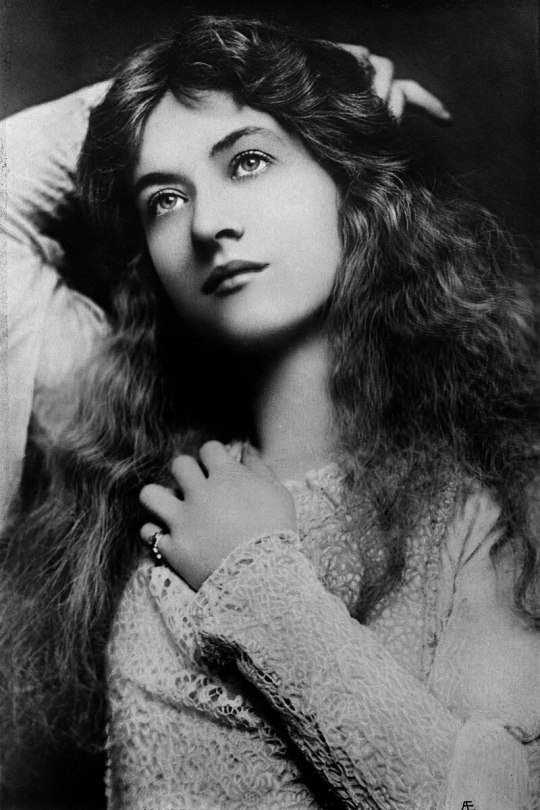
Maude Fealy
Maude Fealy (born Maude Mary Hawk; March 4, 1883 – November 9, 1971) was an American stage and silent film actress whose career survived into the sound era.
In 1896, she made her debut at the Elitch Theatre playing various children's roles. Her first appearance was during the week of July 19 in Henry Churchill de Mille's The Lost Paradise. In 1905, Churchill de Mille's son Cecil B. DeMille was hired as a stock player at Elitch Theatre, and Fealy appeared as the featured actress in several plays. Their friendship continued for decades, including when DeMille cast Fealy in his film The Ten Commandments.
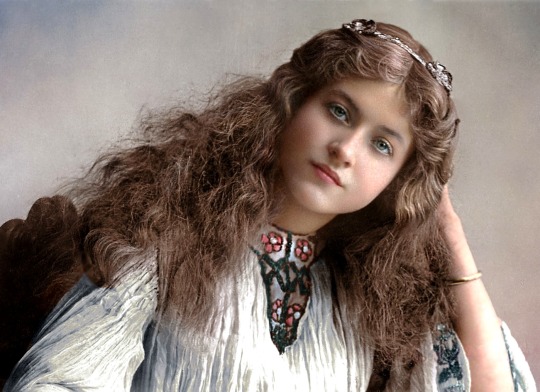
6 notes
·
View notes
Quote
“La pregunta no es quién va a dejarme; es quién va a detenerme"
Ayn Rand
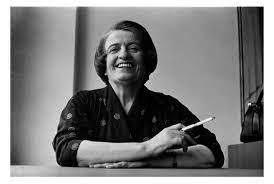
Alisa Zinóvievna Rosembaum fue una filósofa y escritora estadounidense de origen ruso, nacida en San Petesburgo en febrero de 1905.
Desarrolló un sistema filosófico conocido como objetivismo, y que en sus propias palabras define el concepto del hombre como; “un ser heroico, con su propia felicidad como propósito moral de su vida, con el logro productivo como su actividad mas noble y la razón como su único absoluto”. Con este pensamiento, Rand defendía el egoísmo nacional, el individualismo y el capitalismo, argumentando que este es el único sistema económico que le permite al ser humano vivir como tal, haciendo uso de su facultad de razonar.
Ayn Rand era la mayor de tres hermanas de una familia judía, aunque sus padres no eran practicantes, y desde muy joven sintió una gran inclinación por la literatura y el arte cinematográfico. Descubrió al escritor Victor Hugo a la edad de 13 años, y quedó prendada de sus novelas. Fue testigo de la revolución bolchevique y por la cual, ella y su familia tuvieron que escapar a Crimea.
Mas tarde, regresando de Crimea, estudió en la Universidad de San Petersburgo, en donde estudió filosofía e historia, y como gran admiradora del cine que era, escribió guiones cinematográficos. Su mayor influencia la recibió de Aristoteles, y fue gran admiradora de Nietzsche y posteriormente gran detractora.
En 1925, obtuvo permiso para salir de la Union soviética para visitar a unos familiares, tenia 21 años y decidió no regresar nunca mas a su país natal. Vivió en Chicago y posteriormente se mudó a Hollywood en donde tenia trabajos de todo tipo con la finalidad de tener una carrera en Hollywood como guionista.
Fue en la película de Hollywood “Rey de reyes” que conoció al que seria su marido, el director de Hollywood Cecil B. De Mille quien se interesó por ella y el que le ofreció trabajo como extra.
Las novelas mas importantes son “El Manantial” escrito en 1943, y “La rebelión de Atlas” en 1957, en la primera, se narra la historia de un joven e intransigente arquitecto y de su violenta lucha en contra de los convencionalismos del mundo y de su explosiva relación con una hermosa mujer a la que ama profundamente.
Rand, tardó siete años en escribirlo y fue rechazado por doce editores, sin embargo, desde su aparición se convirtió en un best seller mundial, cuyas ideas y propuestas cambiaron la vida de muchos de sus lectores, por la forma en la que se narra la manera en como un hombre enfrenta las vicisitudes de quienes intentan destruirlo.
Su segunda novela, la Rebelión de Atlas, es considerada por muchos, la obra de ficción mas completa y poderosa de Rand sobre la filosofía objetivista, considerada por los estadounidenses encuestados por la biblioteca del congreso de los Estados Unidos en la década de los 80, como el libro de mayor influencia después de la Biblia.
El objetivismo según Rand se basa en los siguientes puntos:
La vida como fundamento de los derechos
Cada individuo debe elegir mediante la razón, qué valores quiere para su vida y los medios para alcanzarlos.
El individuo tiene derecho a existir por sí mismo, sin sacrificarse por los demás ni sacrificando a los demás para sí mismo.
Nadie tiene derecho a iniciar el uso de la fuerza física contra otro ser humano, sea cual sea el fin que quiera obtener.
La realidad existe de forma absolutamente objetiva. Los hechos son hechos, independientemente de los sentimientos, deseos y temores del hombre.
Fuentes: Wikipedia y lecturalia.com
#frases#frases de escritores#citas de escritores#escritores#filosofos#citas filosóficas#notas de motivación#novelistas#aynrand
24 notes
·
View notes
Quote
Al salir la Magdalena entre tules (que le velaban muy bien el cuerpo pues el cine no estaba tan descarado) bajé los ojos. En un leve acto amoroso, bajé los ojos. Siempre bajé los ojos en las escenas que ocurrían entre hombre y mujer, dos seres que para mí no se encontrarían. Aquello se me quedó grabado porque nunca pude lograr amistades verdaderas ni con hombres ni con mujeres ni con perros. Estoy absolutamente sola por dentro. Tan sola que toda mi necesidad afectiva se vuelve literaria.
Dice Guadalupe Dueñas sobre el día que su papá la llevó a ver una película de Cecil B. de Mille
2 notes
·
View notes